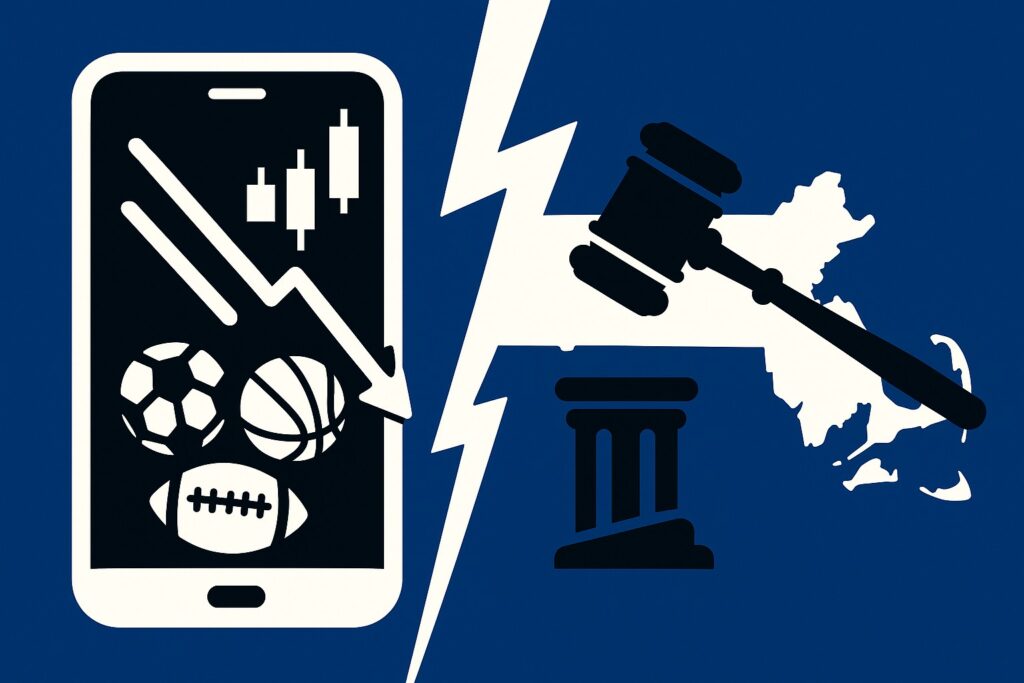In a legal battle with profound implications for the future of American gaming, an unprecedented alliance of states and tribes has unleashed a multi-front legal assault against the online platform KalshiEX LLC. While the immediate goal is to halt what they deem an illegal gambling operation, the fight is far larger: It is a sophisticated defense of the very legal architecture that underpins the entire regulated gaming industry in the United States.
A formidable coalition of 34 states and territories, led by Nevada and Ohio, have filed an amicus curiae (“friend of the court”) brief in the U.S. Court of Appeals for the Third Circuit. To fully appreciate its significance, one must understand the unique and powerful role that state attorneys general play in modern American law. They are not merely another interest group engaging in “judicial lobbying.” As the chief legal officers of sovereign entities, they are often afforded a special status by the courts that elevates their arguments. The Attorneys General filing this brief have turned a wonky, technical statutory dispute into a fundamental debate about the nature of American federalism.
The states’ wielding the canons of federalism
The states frame this dispute through the lens of federalism. They argue that Kalshi’s claim that Congress used an obscure provision in the Commodity Exchange Act (CEA) to silently preempt all state gaming laws is legally untenable. To make this case, they invoke the “no elephants in mouseholes” canon of statutory interpretation from the 2001 Supreme Court case Whitman v. American Trucking Ass’ns. In that case, the Court held that Congress does not hide transformative changes to the law, especially those with “vast economic and political significance,” in “vague terms or ancillary provisions.”
“When Congress removes the States’ historic police powers, it does not whisper in the dark of night,” the attorneys general wrote, directly channeling this powerful legal principle. Their point is that if Congress had intended to federalize sports betting and strip states of their century-old authority, it would have done so explicitly, not through a subtle redefinition of a “swap” in a financial statute.
To bolster this argument, the states lean on Bond v. United States. This 2014 Supreme Court case reinforced the presumption against federal preemption. In Bond, the Court reaffirmed “basic principles of federalism.” It stated that unless Congress provides a “clear statement,” courts should not assume it intends to upend the “sensitive relation between federal and state” governments. The attorneys general are not just making a statutory argument, but an argument about constitutional balance, reminding the court of its duty to protect the traditional police powers of the states.
This legal reasoning implicitly builds on the monumental 2018 Supreme Court decision in Murphy v. NCAA. The Murphy decision was a powerful affirmation of state sovereignty. The states now argue that Kalshi is attempting to achieve through the private sector what the federal government could not: a single, federally-controlled sports betting regime that ignores the specific laws and policy choices of individual states.
The tribal front: A parallel defense of sovereignty
This powerful states’ rights argument is amplified by a parallel brief from the Indian Gaming Association (IGA) and 60 federally recognized tribes. Where the states defend their police powers, the tribes defend their very sovereignty, rooted in a different but equally robust set of federal laws and Supreme Court precedents.
The tribes’ entire argument is built upon the Indian Gaming Regulatory Act (IGRA), the 1988 law that governs all tribal gaming. IGRA itself was Congress’s response to the 1987 Supreme Court decision in California v. Cabazon Band of Mission Indians. This case affirmed the inherent right of tribes to conduct gaming on their lands. The IGA brief argues that Kalshi’s platform directly attacks the system created by Cabazon and codified in IGRA.
The tribal coalition asserts that Kalshi’s sports event contracts are clearly “sports betting,” which is defined as “Class III Gaming” under IGRA and can only be offered on tribal lands if authorized by a tribal-state compact. The tribes directly counter Kalshi’s claim that the CEA overrides IGRA, arguing that repeals of federal law by implication are “disfavored” and that Congress’s intent must be “clear and manifest,” a standard established in cases like Morton v. Mancari.
Furthermore, the tribes invoke the Indian Canons of Construction. This legal doctrine requires any ambiguity in federal law to be resolved in favor of the tribes. They argue that even if the CEA could be read ambiguously, this principle demands that IGRA’s protections for tribal gaming must prevail. “Kalshi tramples upon established federal Indian policy,” the brief argues, “by usurping the rights of tribes to regulate gaming on Indian land and by siphoning revenue from tribal governments.”
This loss of revenue, the brief emphasizes, is not a simple business matter. Citing Justice Sotomayor’s concurrence in Michigan v. Bay Mills Indian Community, the filing underscores that tribal gaming operations are not “mere profit-making ventures” but are the primary funding source for “core governmental functions” like healthcare and education.
The power of the amicus
The Amicus Brief functions as a tool of judicial persuasion. The states’ filing, in particular, operates on a distinct level of influence.
First, it provides the court with unique information it might not otherwise receive. The brief moves beyond abstract legal theory to detail the tangible, on-the-ground consequences. It cites stark statistics, such as the 55% increase in calls to Ohio’s problem gambling hotline in 2023 and a Rutgers University study from New Jersey finding that one in five young adults between 18 and 24 was at high risk for a gambling problem. This approach illustrates the interest the states have in exercising their power regarding gaming. The brief also highlights a direct policy conflict. While most states set the gambling age at 21 to shield younger citizens from higher risks, Kalshi’s platform is open to 18-year-olds, effectively lowering the gambling age by federal loophole.
The briefs also act as a powerful signal of the case’s importance. The sheer size of the 34-state coalition sends a message of widespread governmental concern. This effect is magnified by its bipartisan nature, led by a Democratic AG from Nevada and a Republican AG from Ohio, which tells the court that the issue transcends partisan politics. In an era where competing amicus briefs from red and blue states are the norm, this unified front gives the filing immense credibility.
The brief leans on the famous concept of states as “laboratories of democracy,” arguing they are best positioned to solve the complex problems of gaming. It details Nevada’s rigorous, “front-loaded” suitability investigations for licensees, which require applicants to prove their “good character, honesty, and integrity” and gives the Gaming Commission “full and absolute power” to deny anyone for the cause. It then contrasts this with the federal model’s looser self-certification process, which Kalshi has used to certify that its sports-related contracts comply with the Commodities Exchance Act. The brief also points to Ohio’s voluntary exclusion program, which mandates that operators use “commercially reasonable methods” to prevent at-risk individuals from gambling. These are not abstract powers; they are tangible consumer protection regimes that the states argue are threatened by Kalshi’s business model.
This united front from every major governmental gaming regulator in the nation demonstrates that Kalshi’s business model is at odds with the entire established legal order of American gaming. The court’s decision will now be a critical test of whether that order can withstand disruption from new online platforms seeking to carve out loopholes in federal law.





